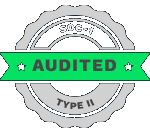If you are considering developing a fintech app or other product to expand your business, it is crucial to keep up with the current fintech trends. Let’s get started.
Table of Contents:
Introduction
“Fintech” is a portmanteau of “financial services” and “technology”, and is an umbrella term for various services, products, and companies. In this article, we will narrow the definition to any technology that facilities or automates financial services.
The idea is, at its core, not complicated. For example, if you have used a mobile wallet to pay for groceries, then you have used fintech. (Payment gateway integration is part of this solution.) Of course, fintech’s uses can be far broader and more complex than that.
While modern fintech may bring to mind customer-centric mobile apps that shake up risk-averse industries, its actual reach is far wider. Its fingerprints are all over insurers, government regulators, banks, property management firms, and more.
Fintech is a fast-growing industry, and the COVID-19 pandemic has only accelerated this. According to Market Data Forecast, its global market value is expected to reach 324 billion USD by 2026. Its growth has been fueled by rapid adoption by consumers and SMEs for financing, insurance, payments, banking, and financial management.
MIT Sloan professor Gary Gensler says that modern fintech has been facilitated by three developments from the mid-1990s: the cloud, the internet, and mobile phones. According to him: “1996 was a really important year, because we figured out how to secure commercial transactions on the internet, how to move packets of data around in a cryptographic way.”
The fintech “technology stack” includes AI, machine learning, cloud, telematics, and mobile, among others. Fintech innovation in the next five to eight years is likely to come from machine learning, AI and natural language processing.
Bill Aulet, managing director of the Martin Trust Center, asserts that there are four “pillars” of fintech businesses need to master for success: entrepreneurship, technology, domain knowledge, and policy and regulation knowledge.
Now that you are armed with the definition and history of fintech, let’s dive into the top fintech industry trends that you should be keeping an eye on.
Top Fintech Trends to Help Grow Your Business
1. Embedded Finance
Embedded finance (or embedded fintech) empowers businesses and organizations to reinvent existing services and open new streams of revenue. This benefits both organizations and customers, since it is easier to purchase a related product from the same source.
In embedded finance, a financial service or technology is integrated with a traditionally “non-finance” product, service, or technology.
Examples of embedded finance include embedded insurance options and buy-now-pay-later programs. A practical instance would be using Google Maps to locate and pay for parking through the Google Maps app rather than through a different app.
Another would be selecting a buy-now-pay-later option on an eCommerce website. This would convert the price into an automatic loan from the store itself. You would not have to use a third-party for lending.
It’s not just eCommerce stores and car insurance companies using embedded finance, though. Schools are starting to look into it, too.
2. Fintech IPO Growth
This one mainly applies to mature fintech unicorns, considering the successful IPOs in 2020 of several tech unicorns in the wake of the COVID-19 pandemic. To compete with NASDAQ, many local exchanges are attempting to make themselves attractive for tech listings.
Fintech companies have been generating record-breaking revenue, to the point that some fear that there may be another bubble like the 2000 dotcom boom.
Aside from the pandemic, reasons for this fintech trend include:
- For tech giants, an IPO can be a source of revenue following dependence on private fundraising
- The attractiveness of global exchanges
- Expectation of more major players to come
3. Shaking Up the Small Business World
This is probably among the fintech industry trends you saw coming. Three important developments occurred in 2020 for small business relationships:
- Goldman Sachs/Amazon partnership: Amazon finally allowed third parties to directly lend to Amazon’s merchants. This is significant, since Amazon had previously issued 1 billion USD in merchant cash advances.
- PPP loans: The Paycheck Protection Program (ended on 31st May 2021) was important, because it empowered small and mid-size banks and credit unions to lend to small businesses. These businesses might have been overlooked or rejected by larger banks, which hold their deposit accounts.
- Stripe Treasury announcement: Stripe announced in a press release that they would enable platforms such as Shopify to “offer merchant access to financial products”.
4. Payroll Fintech
Payroll fintech will be getting more attention. It offers the ability to banks and other organizations to redirect payments away from the holder’s checking account.
According to WhiteSight, there are four categories in payroll fintech: salary on demand, salary advance, crypto payroll and early direct deposit.
5. Fintech as a Service
Banks will be finding it easier and quicker to partner with fintech companies.
Relatively few banks are equipped to partner with fintech companies. However, many fintech companies desire to partner up with banks. This has resulted in a demand/supply imbalance.
Fintech as a service may be a solution to this. An example would be a platform by Akurateco that allows merchants from various niches to access different payments solutions with a single integration. Another would be Synctera, which encourages banks to reinvent their current capabilities and facilitates fintech scale.
Benefits of fintech as a service would also include no maintenance fees, reduced processing costs, and more fraud prevention.
Recommended Reading:
6. Banks & Core Workarounds
Replacing core systems is expensive, slow and cumbersome. At the same time, many professionals believe that core systems are barriers to innovation.
Fintech helps with core workarounds, and there is expected to be a demand for three particular types of fintech providers: core integration providers, digital cores, and payment hubs.
7. Robotic Process Automation (RPA)
With RPA, bots or digital robots will be able to automate certain repetitive tasks. (You’ve probably come across a chatbot before.)
Many organizations are already utilizing RPA for security checks, account maintenance, customer onboarding and payment reconciliation.
This leaves human employees with the time and energy to focus on other work.
Conclusion
From temples and banking tents to blockchain and cardless systems, fintech has had a long and fascinating journey. With modern fintech, we are witnessing a revolution in the financial sector.
If you’ve read this far, you probably want to be part of that revolution. If you’ve got an idea for an app or software in mind, BluEnt provides fintech app development and fintech software development to Fortune companies, SMEs and funded startups. You can check out how we’ve served other businesses like yours view fintech development casestudy.
Ready to grow your business with fintech solutions? Contact us now!
Maximum Value. Achieved.



 How Much Does App Development Cost? A Budget Estimation Guide
How Much Does App Development Cost? A Budget Estimation Guide  Using Angular to Develop Mobile Apps Can Be a Game Changer for Your Business
Using Angular to Develop Mobile Apps Can Be a Game Changer for Your Business  Pros and Cons of the WooCommerce Plugin for Online Merchants
Pros and Cons of the WooCommerce Plugin for Online Merchants  Mean Stack vs LAMP Stack: Which One is Better for Your Business?
Mean Stack vs LAMP Stack: Which One is Better for Your Business? 
